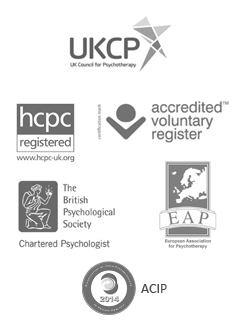Finding Motivation to Work
Reader’s Question
I lost my job a few months ago and since then I’ve been unable to find the motivation to do, well, anything. I realized today that maybe what I thought was a pattern of behavior at work actually applies to my whole life. Namely: I flounder unless put under stress or a lot of responsibility. It seems counterintuitive to me, but I noticed it starting with the first job I ever had where I was just a lowly employee doing the bare minimum to get by. I felt listless. I was still a decent employee though, and eventually I was made manager — and as soon as I felt like I had control over something, everything changed for me. Almost overnight, I suddenly cared about what I was doing, would work extra hard, and was really involved in all aspects of it. I loved it and I really blossomed into a stellar employee. Any job since then has been the same: unless someone is really counting on me to handle something important, I can barely do anything.
My partner makes enough to support us and I’ve never really been in a situation where my monetary contribution is imperative. I hadn’t realized that perhaps it’s causing me to feel useless, and thus my life is lacking the responsibility I crave.
The biggest problem for me, though, is that recognizing the problem doesn’t help. It doesn’t help even though I know if I just forced myself to look for a job, a volunteer position, or ANYTHING that would promote those feelings of responsibility then I would start to shift back into my normal self. I just can’t seem to care. So how do I break the cycle? And why do I not just thrive under pressure, but require it?
Psychologist’s Reply
It sounds as if you’ve discovered how stress is very much like an ocean wave. Like surfers, we look for the optimal wave that isn’t too weak or too strong to help get us to shore — upright on our boards. When stress is too high, we can often get consumed by the wave, or knocked off our steady footing before reaching our goal. Sometimes we just avoid the strong wave altogether for fear of falling and failing. On the other hand, when stress is too low, we often don’t have the momentum to reach our goals, and the wave fizzles out too soon — which it seems you are experiencing.
I think you’ve done some really effective reflecting, however, and are beginning to notice the patterns and your needs for an ocean with bigger waves. It’s not something within you, but rather the interaction between your needs and your environment that aren’t matching well. I also suspect that the circumstances of how your last job ended — not by your choice, it seems — may be making it even more difficult for you to find the energy to care.
Often when people lose a job, it can feel much like grief. The multiple losses experienced with a job loss, such as loss of structure, accountability, social connections, and a place to go every day, can be significant. When we experience a loss and are grieving, we often don’t feel like ourselves. We feel more sluggish, tired, have changes in appetite, feel isolated or have difficulty reaching out to others. Combining these difficulties with the pressure to find a new job can be even more debilitating. In these situations, it can be helpful to talk with a trusted friend or a mental health professional to process the loss, to engage in greater self-care, and to find ways to set the pressure to find a job aside until you’ve worked through what the job meant and what it means not to have it now.
After going through the grief process, it may also be helpful to find someone who specializes in vocational counseling — many counseling psychologists have had training in vocational assessment and development. A well-trained professional can work with you to explore your interests, abilities, and values to find a good person-environment fit for you that will be more inspiring and motivating. Work is an integral part of our lives and our identities — and exploring to find something meaningful and satisfying may be worth the time and energy for you now. Knowing more about yourself and how you might thrive on a bigger wave could be useful as you explore potential career paths.
Please read our Important Disclaimer.
All clinical material on this site is peer reviewed by one or more clinical psychologists or other qualified mental health professionals. Originally published by Dr Elizabeth Chamberlain, PhD on and last reviewed or updated by Dr Greg Mulhauser, Managing Editor on .
https://askthepsych.com/atp/2016/06/14/finding-motivation-to-work/
All copyrights for this article are reserved to ask a therapist


Recent Comments